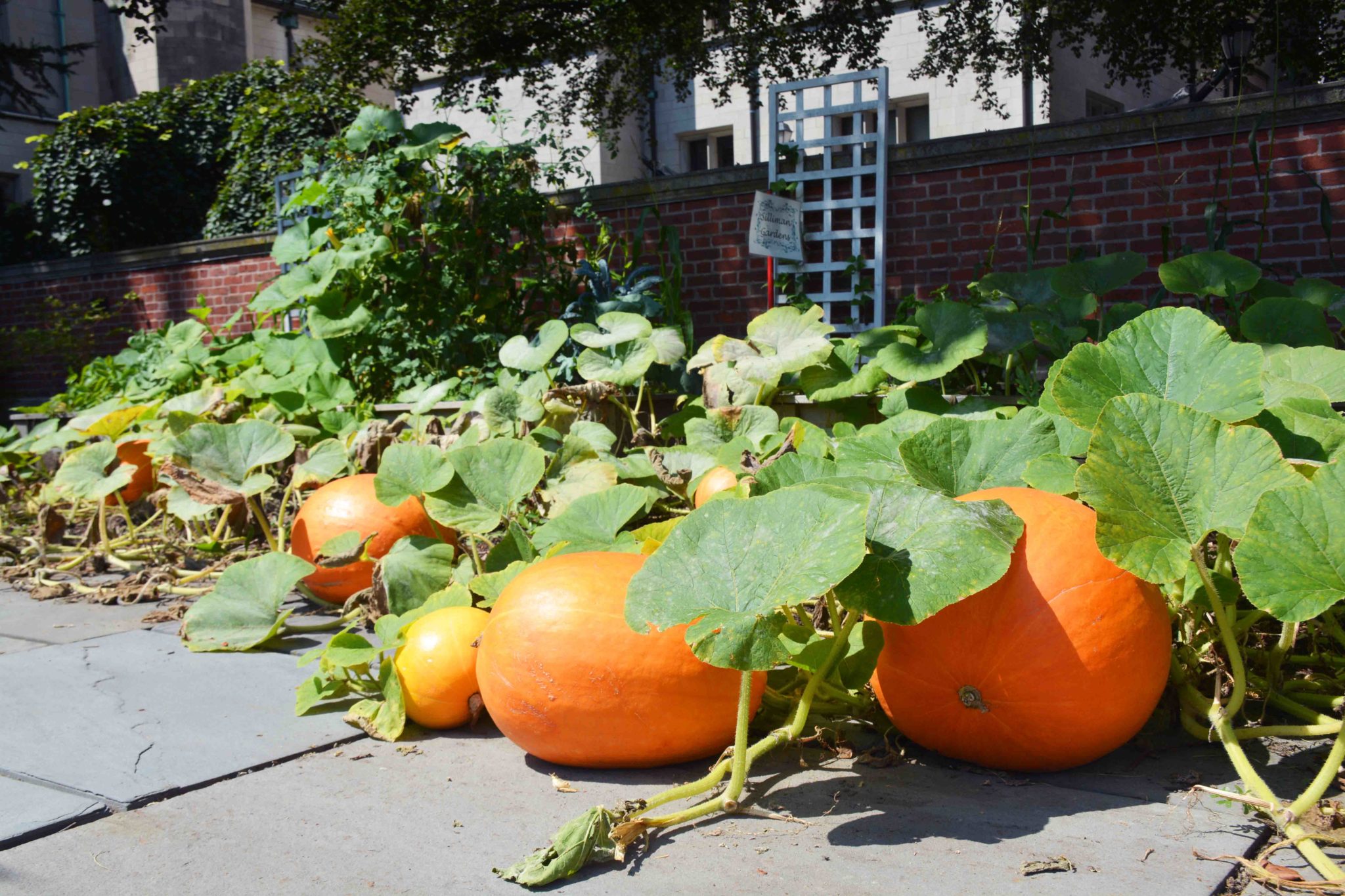
As summer winds down, gardens with pumpkins, green beans, tomatoes, zucchini and other vegetables are garnishing the Silliman College courtyard just in time for a fall harvest.
In an effort to promote environmentally friendly landscaping strategies on campus and to allow students to lead their own sustainability initiatives, Silliman began plans for the Silliman Garden last summer, and the garden was planted with kale, tomatoes, daikon and squash in the spring. Soon, such gardens could begin sprouting up all over campus, according to Yale Landscaping and Maintenance Services supervisor Joe Signore. Berkeley, Ezra Stiles and Saybrook colleges will follow Silliman’s lead in the coming year.
“The idea behind the garden was to work together to make yummy food that we could eat, as well as pumpkins that we could carve for our many Silliman Halloween festivities,” Head of Silliman College Laurie Santos said. “But I see the garden as part of our broader wellness initiatives at Silliman.”
The Silliman Garden, the Yale Divinity Farm and various gardens at Yale’s cultural centers, including La Casa Cultural and the Native American Cultural Center, serve as models for Signore and the grounds maintenance teams’ commitment to making a more sustainable Yale. At La Casa Cultural, rainwater runoff from the roof is used to irrigate the garden. The Yale Divinity Farm has implemented a composting program.
While Signore leads University-wide approaches to reducing the impact of Yale’s landscaping and gardening practices, residential colleges have also implemented smaller projects within their walls. The Acorn, the student-run cafe in Silliman, was Platinum Certified by the Yale Office of Sustainability. The college also runs breadmaking workshops led by Graduate Affiliate Vlad Chituc to teach students that going green and eating local can be delicious, according to Santos.
Calvin Schwartzberg ’20, a student coordinator for the Silliman Garden, said that the garden was an example of the opportunity students have to see their ideas come to fruition in their residential colleges. The vegetables that he and other members of Silliman will pick and cook into flatbreads and zucchini bread were suggestions from the residential college community.
“I love the idea of students working together out in the dirt to create something beautiful,” Santos said. “It was so fun to see students return to campus and see our huge pumpkin patch knowing that this was something that our community created together.”
Schwartzberg and Santos both said they hope to expand on the current garden design with more greens and new raised beds. They are also in talks to add an owl house, Santos said.
As other residential colleges look to begin their own wellness gardens, Signore also plans to plant pollinator gardens to attract honey bees, butterflies and other species in an effort to promote biodiversity in urban meadows throughout the Science Hill area of campus.
The Office of Sustainability was established in 2005.
Julianna Lai | julianna.lai@yale.edu







